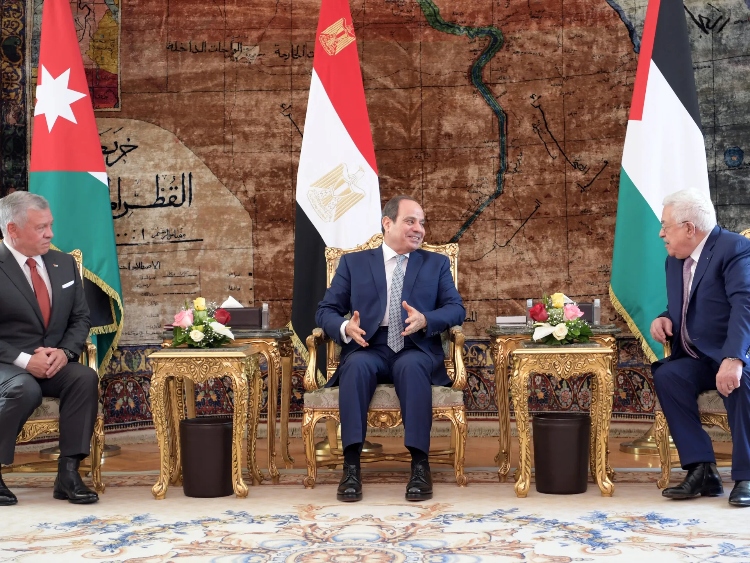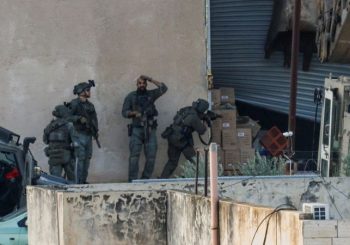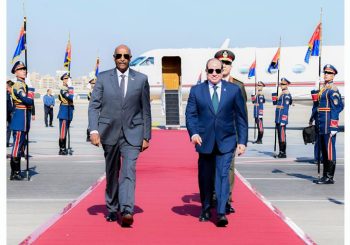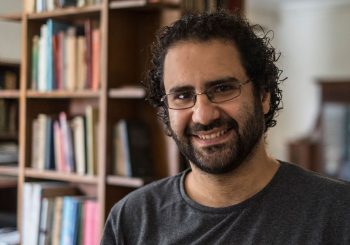Egypt has long positioned itself as a mediator in the Israel-Palestine conflict by leveraging its unique geographical location and historical ties to both parties— a critical role given the ongoing tensions and humanitarian crises that arise from the conflict.
This longstanding relationship forms the foundation for Egypt’s role as a mediator in the conflict.
Historical Ties: From Caliphates to Modern Politics
The relationship between Egypt and Palestine dates back to the seventh-century Arab conquests, when both regions became integral parts of the Rashidun and later the Umayyad and Abbasid Caliphates.
These early Islamic empires formed a deep-rooted connection and established profound religious and cultural bonds that continue to influence relations today.
In the modern era, Egypt has played a crucial role in balancing its peace treaty commitments with Israel, established in 1979, while simultaneously advocating for Palestinian rights.
The Impact of the Six-Day War
The backdrop of this intricate relationship began with the aftermath of the Six-Day War in 1967, which marked a significant turning point in the region. Following Israel’s occupation of Gaza and the West Bank, Palestinian resistance intensified, leading to a protracted and enduring conflict.
Over the years, Egypt’s involvement as a mediator has become particularly prominent during various escalations between Israel and Hamas. Notable instances of this mediation include the conflicts of 2008, 2012, 2014, and 2021.
Between 1967 and 2008, the Israel-Palestine conflict saw significant developments that shaped its trajectory. This period included the War of Attrition (1967-1970) between Israel and Egypt and the rise of the Palestine Liberation Organization (PLO) as a key representative of Palestinian nationalism.
The Yom Kippur War in 1973 led to the Camp David Accords in 1978, which established peace between Egypt and Israel. Following this, the First Intifada (1987-1993) marked a major Palestinian uprising against Israeli occupation, resulting in the Oslo Accords that facilitated mutual recognition and the creation of the Palestinian Authority.
However, ongoing violence and political fragmentation, particularly with Hamas’ rise and its takeover of Gaza in 2007, set the stage for future escalations.
The Quest for Palestinian Unity
During these crises, Egypt facilitated ceasefire negotiations and made concerted efforts to broker peace agreements to demonstrate its commitment to regional stability.
Recognizing the importance of Palestinian unity, Egypt has hosted reconciliation talks between Hamas and Fatah on several occasions, particularly since the late 2000s. The first major round of talks took place in 2007 following Hamas’s takeover of Gaza, which created a political divide between the two factions.
These discussions aimed to reconcile their differences, establish a unified Palestinian government, and address governance issues in Gaza. Subsequent talks occurred in 2011, 2017, and 2020, with Egypt acting as a mediator to bridge the gaps between the factions.
While some agreements were reached, such as the formation of a unity government and plans for general elections, significant implementation challenges have persisted.
Differing political agendas, the lack of trust, and external pressures between Hamas and Fatah have hindered lasting unity which resulted in a fragmented Palestinian leadership that complicated their position in negotiations and efforts to address the challenges facing their Palestinians.
For Egypt, bringing together Palestinian leadership stems from the understanding that a cohesive governance structure is essential for effectively addressing the numerous challenges facing the Palestinian people in Gaza.
Recent Initiatives: The Cairo Peace Summit
From 2020 to 2023, Egypt has undertaken several initiatives to address the violence and instability in Gaza. The Cairo Peace Summit held in October 2023 exemplified this commitment, bringing together representatives from 34 countries to discuss military de-escalation, humanitarian aid, and long-term solutions.
The Cairo Peace Summit reflected Egypt’s desire to take a leadership role in the region and reinforce its position as a key mediator.
Additionally, the proposed Three-Stage Plan aimed at resolving the Gaza War included critical steps such as the release of hostages, a ceasefire, and the facilitation of humanitarian aid.
Egypt has also played a vital role in facilitating humanitarian aid through the Rafah border crossing, allowing essential supplies to reach Gaza amid ongoing conflicts. Egypt’s involvement has been crucial in coordinating international efforts to provide relief and support to the besieged population, which faces dire humanitarian conditions.
The relationship with Hamas is complicated by the group’s ties to organizations that Cairo designates as terrorist entities, including various jihadist groups such as Al-Qaeda and ISIS. These affiliations raise security concerns for Egypt and influence its diplomatic approach to Hamas by necessitating a careful balancing act. Egypt must navigate the interests of its allies, who may have differing stances towards Hamas, while also addressing its own national security priorities.
The designation refers to Egypt’s classification of Hamas and its affiliations with various jihadist groups, such as Al-Qaeda and ISIS, as terrorist entities.
Such classification complicates communication and negotiation efforts, making it difficult for Egypt to foster trust and dialogue among the conflicting parties. Consequently, Egypt must carefully manage its diplomatic approach to effectively mediate between Hamas and other stakeholders in the region.
In addition to these challenges, Israel’s most recent blockade on Gaza presents another significant hurdle as it complicates the flow of goods and humanitarian aid, hindering reconstruction initiatives even when Egypt seeks to support them.
As of November 2024, restrictions imposed by Israel on the movement of people and goods create a dire situation in Gaza, where essential supplies are often scarce.
Such restrictions include limitations on the import of construction materials, medical supplies, and food, as well as stringent controls on the movement of individuals seeking medical treatment.
Collaborative Efforts for Reconstruction
Moreover, Egypt’s collaboration with various international and regional partners has been essential for supporting Gaza’s reconstruction and mediating peace. The country has engaged with the United Nations, Gulf states such as Qatar and the UAE, and the European Union to coordinate aid and reconstruction projects.
These partnerships have been vital for addressing the extensive damage in Gaza, where estimates indicate that approximately USD 53 billion (EGP 2 trillion ) is needed for reconstruction. Immediate needs are estimated to total USD 2-3 billion (EGP 102-103 billion).
While Egypt has facilitated important negotiations and humanitarian efforts, external challenges such as factional divisions among Palestinians and the Israeli blockade complicate its initiatives. The ongoing violence and instability in Gaza highlight the need for effective diplomacy and collaboration.
This key role is often linked with achieving peace in the Middle East, a role that Egypt has been keen to play in the past and continues to pursue actively today.







Comments (0)